"Mambo No. 5" is an instrumental mambo and jazz dance song originally composed and recorded by Cuban musician Dámaso Pérez Prado in 1949 and released the next year.

"Come Sail Away" is a song by American pop-rock group Styx, written and sung by singer and songwriter Dennis DeYoung and featured on the band's seventh album The Grand Illusion (1977). Upon its release as the lead single from the album, "Come Sail Away" peaked at #8 in January 1978 on the Billboard Hot 100, and helped The Grand Illusion achieve multi-platinum sales in 1978. It is one of the biggest hits of Styx's career.
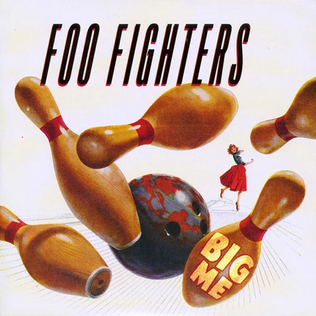
"Big Me" is the fourth single by Foo Fighters from their self-titled debut album. Released in the spring of 1996, the song became a crossover hit for the band on pop radio, when it reached #13 on the Billboard Hot 100 Airplay.

Ronald Montague Moss is an American actor, musician and singer/songwriter, a member of the band Player, and best known for portraying Ridge Forrester, the dynamic fashion magnate on the CBS soap opera The Bold and the Beautiful from 1987 to 2012.
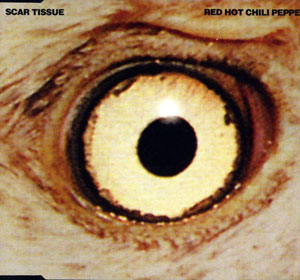
"Scar Tissue" is the first single from American rock band Red Hot Chili Peppers' seventh studio album, Californication (1999). Released on May 25, 1999, the song spent a then-record 16 consecutive weeks atop the US Billboard Hot Modern Rock Tracks chart as well as 10 weeks atop the Billboard Mainstream Rock Tracks chart, and it reached number nine on the Billboard Hot 100. It was also successful in Iceland, New Zealand, and Canada, reaching numbers one, three, and four, respectively. In the United Kingdom, it charted at number 15 on the UK Singles Chart.
"Last Kiss" is a teenage tragedy song written by Wayne Cochran and first recorded by Cochran in 1961 for the Gala label. Cochran's version failed to do well on the charts. Cochran re-recorded his song for the King label in 1963. It was revived by J. Frank Wilson and the Cavaliers, who took it to number two on the Billboard Hot 100 charts. Wednesday, Pearl Jam, and several international artists also covered the song, with varying degrees of success.
Player is an American rock band that was formed in Los Angeles the late 1970s. The group scored several US Hot 100 hits, three of which went into the top 40; two of those single releases went top 10, including the No. 1 hit "Baby Come Back", written by group members Peter Beckett and J.C. Crowley.
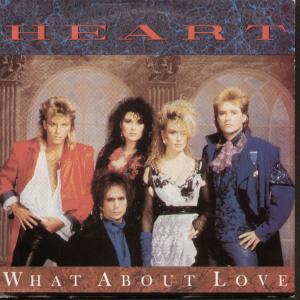
"What About Love" is a song originally recorded by Canadian rock band Toronto in 1982. It was later recorded by American rock band Heart in 1985 and was released as the first single from the band's self-titled album, Heart. The band's "comeback" single, it was the first Heart track to reach the top 40 in three years, and their first top 10 hit in five. The song was also their first hit single on their new record label, Capitol Records. Grace Slick and Mickey Thomas, co-lead vocalists of Starship at the time, provide additional background vocals on the song.

Heartbreaker is the twentieth solo studio album by American singer-songwriter Dolly Parton. It was released on July 17, 1978, by RCA Victor. The album was produced by Gary Klein and Parton with Charles Koppelman serving as executive producer, and was an even more direct aim at the pop charts, with several of its songs verging on disco. The album topped the Billboard Top Country Albums chart for nine consecutive weeks and peaked at number 27 on the Billboard 200. The album produced two number one hits on the Billboard Hot Country Songs chart, "Heartbreaker" and "I Really Got the Feeling", while "Baby I'm Burnin'" peaked at number 25 on the Billboard Hot 100. The album has been certified Gold in the United States and Canada.
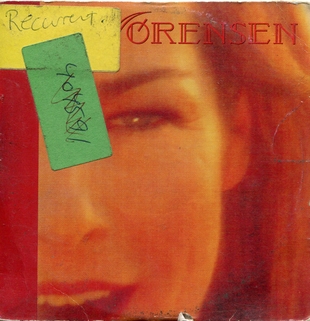
"Torn" is a song written by Scott Cutler, Anne Preven, and Phil Thornalley. It was first recorded in 1993 in Danish by Danish singer Lis Sørensen, then in English in 1995 by Cutler and Preven's American rock band Ednaswap, and in 1996 by American-Norwegian singer Trine Rein.

"Play That Funky Music" is a song written by Rob Parissi and recorded by the band Wild Cherry. The single was the first released by the Cleveland-based Sweet City record label in April 1976 and distributed by Epic Records. The performers on the recording included lead singer Parissi, electric guitarist Bryan Bassett, bassist Allen Wentz, and drummer Ron Beitle, with session players Chuck Berginc, Jack Brndiar (trumpets), and Joe Eckert and Rick Singer (saxes) on the horn riff that runs throughout the song's verses. The single hit No. 1 on the Billboard Hot 100 on September 18, 1976; it was also No. 1 on the Billboard Hot Soul Singles chart. The single was certified platinum by the Recording Industry Association of America for shipments of over 2 million records and eventually sold 2.5 million in the United States alone.

"Too Close" is a song by American R&B group Next featuring uncredited vocals from Vee of Koffee Brown. It contains a sample of "Christmas Rappin" by Kurtis Blow and was released on January 27, 1998, as the second single from their debut album, Rated Next (1997). The song reached number one on the US Hot 100 and R&B charts, topping the former for five non-consecutive weeks, and has gone platinum, making it their biggest and best-known hit.

"If You're Gone" is a song by American rock band Matchbox Twenty. The song, written by the band's frontman Rob Thomas, was released on September 18, 2000, as the second single from their second album, Mad Season (2000). It reached number five on the US Billboard Hot 100 chart, becoming the band's second best-ranking song on the chart, and also became a hit on adult contemporary radio, spending two weeks at number one on the Billboard Hot Adult Contemporary Tracks chart.

"Come Back to Me" is the debut single by American actress and singer Vanessa Hudgens. The song was written and produced by Antonina Armato and Tim James. It was released on September 12, 2006, through Hollywood Records as the lead single from Hudgens' debut studio album, V (2006). The song is built around a sample of "Baby Come Back" (1977) by American band Player. Due to the inclusion of the sample, the original song's writers, Peter Beckett and J.C. Crowley, obtained writing credits. Musically, "Come Back to Me" is a R&B song with an urban beat, string instruments and hand claps.
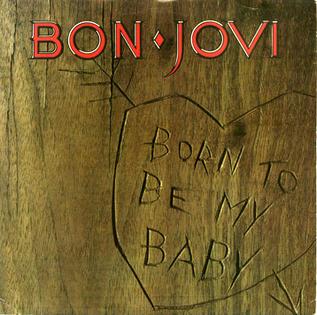
"Born to Be My Baby" is a song by American rock band Bon Jovi. It was written by Jon Bon Jovi, Richie Sambora, and Desmond Child. It was released on November 24, 1988 as the second single from their fourth studio album New Jersey. It peaked the following year at number 2 on the Cash BoxTop 100, 3 on the Billboard Hot 100, number 7 on the Mainstream Rock Tracks chart, number 22 in the UK, and number 30 in Australia.
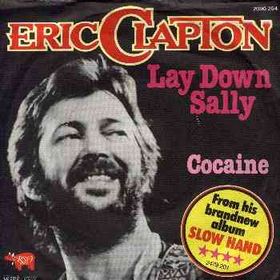
"Lay Down Sally" is a song performed by Eric Clapton, and written by Clapton, Marcy Levy, and George Terry. It appeared on his November 1977 album Slowhand, and reached No. 3 on the Billboard Hot 100 chart.
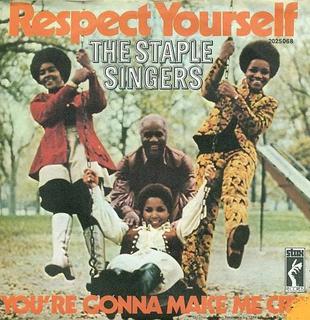
"Respect Yourself" is a song by American R&B/gospel group the Staple Singers. Released in late 1971 from their album Be Altitude: Respect Yourself, the song became a crossover hit. The Staple Singers' version peaked at No. 12 on the Hot 100, No. 2 on the Hot Soul Singles chart, and is one of the group's most recognizable hits. In 2002, the song was inducted into the Grammy Hall of Fame, and in 2010 it was ranked #468 on the Rolling Stone list of the 500 Greatest Songs of All Time, moving down 4 spots from #464 in 2004.

Player is the debut album from Los Angeles, California-based rock band Player, released on September 1, 1977 under RSO Records.

"This Time I'm in It for Love" is a song recorded by the American rock band Player. It was the second single from their self-titled first studio album. The song was released in early 1978 as the immediate follow-up to their biggest hit and debut single, "Baby Come Back".

The singles discography of English singer Cliff Richard consists in excess of 200 singles, of which 159 singles have been released in the UK in varying vinyl, CD, cassette and digital formats. Listed alongside the UK singles in the discography below are a further 20 singles which were released in other territories, as well as 22 singles which were sung in German and only released in German-speaking countries.


















